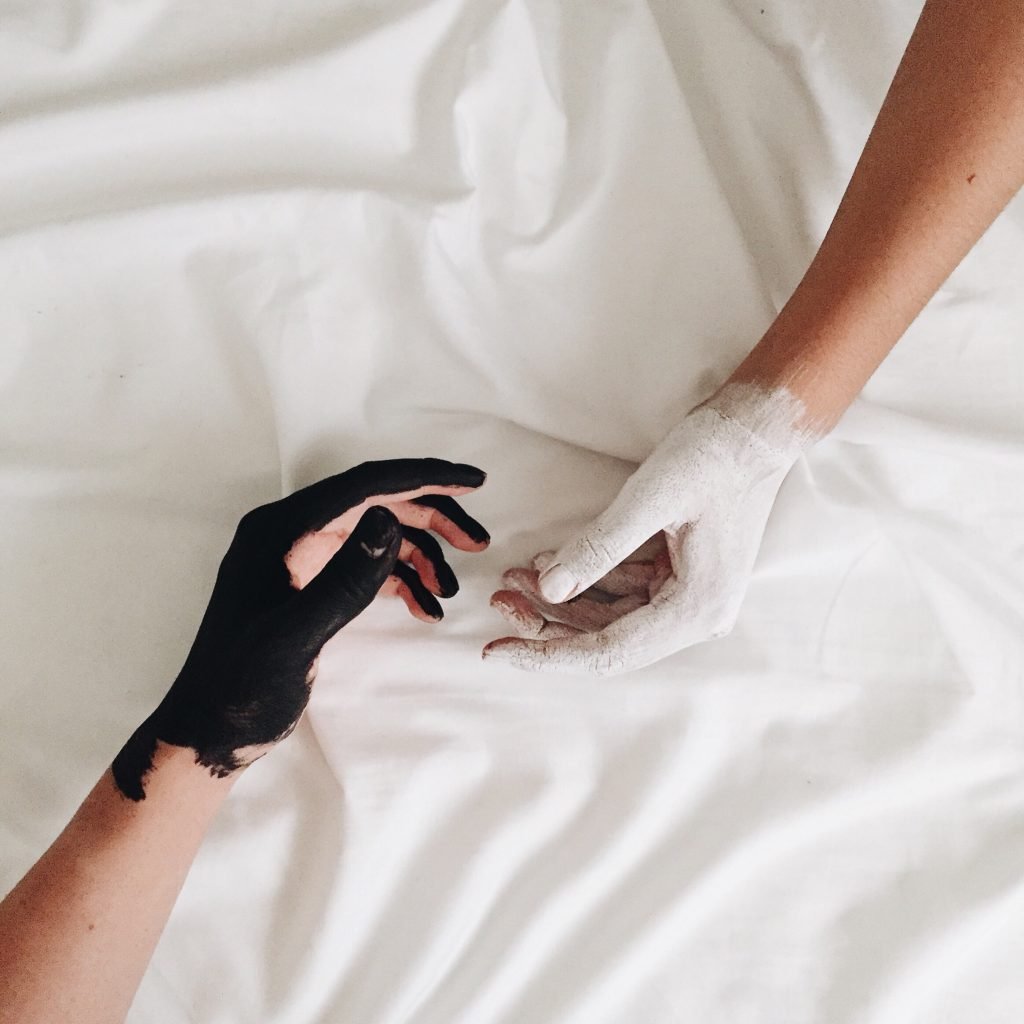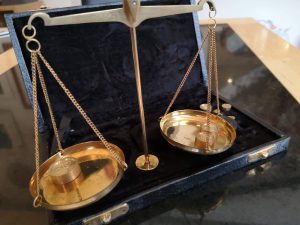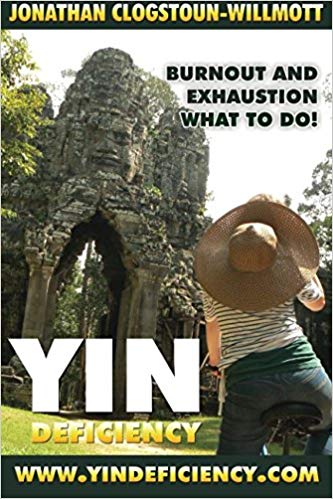Subscribe to the Newsletter
If you are interested in understanding how Traditional Chinese Medicine can improve your life sign up to my newsletter for the latest updates.

Balancing Yin and Yang is really all there is to Chinese Medicine.
Dr John Shen (whose seminars I attended in 1979 and 1980) once said that it takes about 4 minutes to understand Chinese medicine basics and then 10 years to begin to get to grips with how to use it.
Western medicine, on the other hand he said, takes 10 years to master and then about 4 minutes (in the consulting room with a prescription pad) to put it into practice!
In Chinese medicine, if there is ill-health, there will be too much of either Yin or Yang … or too little of one of them. Either way, one will preponderate and recognising which is half the battle.
Of course, the other half of the battle is working out what to do about it! That’s what acupuncturists spend years of their lives learning. So balancing Yin and Yang becomes a lifetime process.
To read more about the background to this, click Yin and Yang.
With either too much or too little Yang or Yin, your health won’t return to normal until by balancing Yin and Yang the excesses and deficiencies are ironed out.
Yang energy by its nature tends to rise, so the body has various ways to make it descend. All the Yang channels start either on the hands and go to the head. Alternatively they start on the head and descend to the feet. If you imagine someone standing with their hands above them, you can see how energy is moved from top to bottom.
Click to read more about Yang Excess.
When Yang excess occurs, it’s partly because the Channels can’t ‘descend’ it fast enough. Yang excess manifests mainly in the upper or outer parts of the body, eg on the skin or head.
Excess Yang comes suddenly, with acute pain and either a sense of excitement, heat or a fever. The patient is noisy and demanding, complains often, suffers from redness, inflammation and thirst; likes cool things to drink. He lies stretched out, not curled up. Skin feels hot. Urine is dark and may be reduced in volume. His stools are smelly and he may be a little constipated. Pulse is fast and floating.
In fact, you might have symptoms described as Wind-Heat.
When there is excess of Yang, there will be an apparent lack of Yin qualities, though in fact this is only because Yang reigns supreme for the time being.

When treating a condition of excess Yang, it is important to clear the excess. But you also have to preserve Yin too. As we said, the aim is balancing Yin and Yang.
In the situation described above, which came on rapidly and was probably caused by what is called an external pathogenic factor – a ‘bug’ to the rest of us! – we use treatments to clear heat and move the Qi, whilst supporting Yin if necessary.
Why the emphasis on supporting Yin?
Because when you produce all those Yang excess symptoms, (like heat), your body’s Yin energy is working hard at balancing Yin and Yang. In clearing the excess Yang, we don’t want to harm the essential Yin energy, which too strong a treatment might do.
Most of the acupuncture points used would be on Yang meridians, and dispersing actions would be used. These points are typically on the hands and arms, or upper back or back of the neck, all of which are very Yang areas.
Of course if the external pathogenic factor had penetrated to a Yin organ, such as the Lungs, then treatment on that would be given too. So the rule about treating excess Yang only on Yang meridians varies with circumstances. Chinese medicine is very flexible, but balancing Yin and Yang is always the aim.
Bear in mind that Yin factors are Cold, Damp and Phlegm. If the body’s reaction to disease is with what are called Full-Cold symptoms, or Damp or Phlegm, then it will display signs of those qualities.
Click to read about Yin Excess signs and causes.
Here’s what someone with Yin excess might be like.
The patient looks pale, his pulse feels ‘full’ and a bit slow.
Usually Yin excess develops more slowly than Yang excess. Yin excess also tends to be more common in chronic conditions. (Often signs of Yin excess develop over a period of many months or even years.)
In Full-Cold (say from a bug, where the condition is known as Exterior Cold), treatment usually aims to facilitate sweating. This is because if the sweat occurs when the patient starts to feel warm (from treatment or because the body overcomes the cold invasion with Heat), then it shows that the body is dispersing the Cold outwards.
Such a ‘sweating’ treatment disperses Cold, without weakening Yang: indeed it helps Yang raise a fever and then naturally cools down with perspiration.
By the way, in balancing Yin and Yang here, you might find something peculiar: that the patient feels cold but has a high fever.
In Western Medicine, your doctor would want to bring the fever down, and never mind that the patient was feeling cold.
But in Chinese Medicine, the feeling of coldness by the patient (assuming there were other signs of Full-Cold Yin excess) would suggest that cooling the patient might prolong the condition.
What to do?
Somehow, instead, the patient’s body has to produce the feeling of heat, enough to causing a sweat. Even sitting in a hot bath might do it, (but maybe not for too long). Various herbs and hot toddies can do this too.
(There are other situations of Yin excess where the body is already sweating but not improving – a condition called ‘attack by wind-cold‘ with deficiency – where treatment is slightly different.)
In long-term Yin-excess cold, obviously you still want to warm up the patient, but you don’t want to facilitate perspiration which might weaken and cool the patient. This is because the cold has penetrated inside. The treatment here supports Yang but the treatment, herbs and foods are strengthening, not dispersing.
Sometimes, the correct treatment here may produce a Full-Cold condition in which case you can then deal with it by causing heat and perspiration. This sort of change needs careful monitoring.
This is where you’ve run out of oomph!
Symptoms include feeling colder as you get tired, with cold legs and arms, and lung ‘weakness’: you don’t really want to speak much and you may feel rather short of breath.
Thirsty? Not with this, and you’ll prefer warmth. In addition, you may be sweating at unexpected times (for example when you are just sitting quietly or having a meal, or before you’ve really begun to exercise).
Your appetite is poor, your stools are loose, you urinate lots (pale urine) and you get tired from even gentle walking or talking. Without enough Yang, you may feel cold and weak, even getting the occasional heart palpitation or extra heart-beat.
Treatment consists of encouraging prolonged rest and good food, and treatment to foster and strengthen Yang. Many acupuncture points can do this. Most of them are on the Stomach, Spleen, Lung or Large Intestine channels, but some other powerful energy points in the lower abdomen or back may be useful.
Click for more on Yang Deficiency.
If we burn the candle at both ends, we reduce the time for rest, and deprive our bodies of their ability to recuperate properly. Then we push ourselves too hard and our reserves run low – our Yin reserves.

Symptoms to start with are nothing much, so unfortunately we don’t really pay them much attention.
There may be a little dizziness, or not even that: just a slight absence of mind. But we find our mouths drier than usual (though these days some people drink so much water that they don’t notice mouth dryness – though drinking water won’t prevent Yin deficiency). At night, the throat may seem a little dry.
Ears experience mild noises – tinnitus. We may start waking up between 3 and 5am for no obvious reason. Usually Yin deficient people tend to lose weight or be thin. The pulse tends to be ’empty or fine’ and may ‘float’.
As the condition worsens, new symptoms are added. Again nothing very special, and often attributed to other causes. For instance, stools may be drier or smellier than normal, and the urine darker or even rather scanty in quantity.
Gradually you are un-balancing Yin and Yang!
At this stage, there may be some definite loss of weight, and a GP might be concerned about hyperthyroidism. Palms and soles may start to feel hot: typically the patient starts to like bare feet on cool floors.
By late afternoon or early evening the individual definitely feels warmer than in the past, and may uncharacteristically open windows to cool down a little. Or he or she may get a bit bored or restless, having worked well until that time.
By now, the tongue is showing red (because Yin fails to balance Yang, so Yang signs appear to preponderate, although actually it’s due to lack of Yin, ‘showing up’ the Yang) and the pulse is a little rapid as well as floating.
The condition has now moved on from being mere Yin deficiency, to being Yin deficiency with Empty Heat.
Sometimes you may think that this is a Yang excess condition but it isn’t. It’s caused by deficient Yin being unable to balance the natural Yang energy of the body. Balancing Yin and Yang is vital now.
Click for more on Yin Deficiency.
When there are signs of what is called ‘Empty Heat’ with Yin deficiency, treatment makes no attempt to disperse Yang. After all, you’re already short of Yin and the last thing you want to do is weaken Yang too.
That Yang is what you’ll use to help to help foster Yin.
In balancing Yin and Yang here, the treatment aims to nourish and support Yin.
Your acupuncturist might make suggestions about regulating your lifestyle …
… all with the aim of helping you understand the importance of balancing Yin and Yang.
Unfortunately, Yin deficiency is becoming more common, especially in women, as people struggle to maintain their standard of living. For women, this condition often also appears around the menopause when there are still major family issues to deal with and a job that requires more than before: all of which can exacerbate the syndrome.
Often at the menopause, and also when a woman is experiencing painful periods, there is a problem with one of the Extraordinary Vessels called the Chong Mo.
Balancing Yin and Yang is a lifetime process.
Even when you’re well, one will always be changing, while the other works to maintain equilibrium.

Stay in Touch!
No spam, only notifications about new articles and updates.

Book a Video consultation if you want to know more about your symptoms

Why You get Nervous Stomach Anxiety and How to Handle It. Acupuncture has great ways to help.
Subscribe to the Newsletter
If you are interested in understanding how Traditional Chinese Medicine can improve your life sign up to my newsletter for the latest updates.
Subscribe to the Newsletter
If you are interested in understanding how Traditional Chinese Medicine can improve your life sign up to my newsletter for the latest updates.